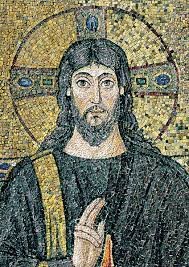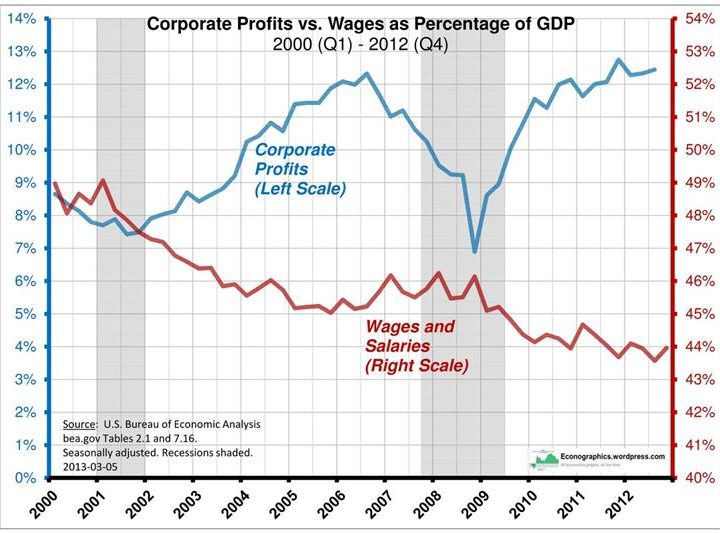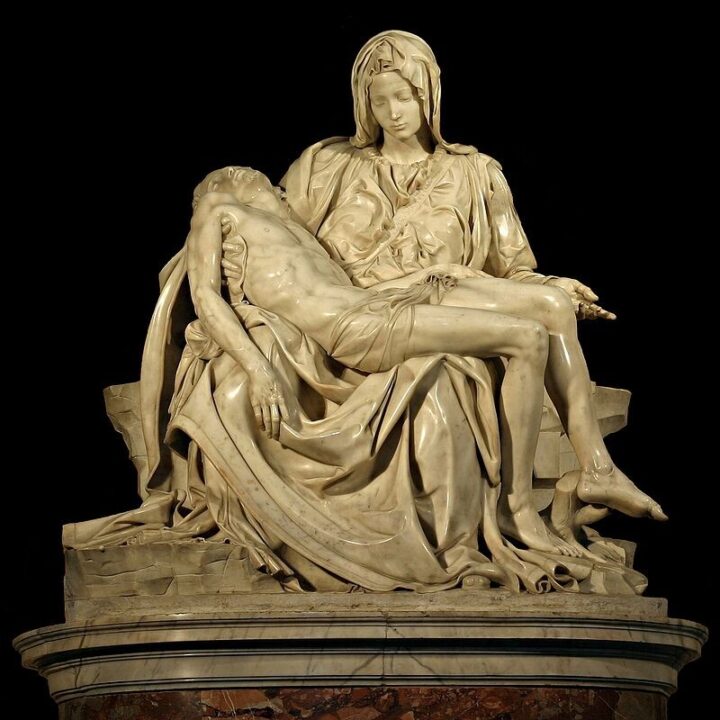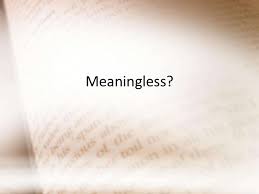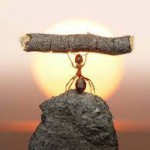The question of the deadness of God is one that had resonated well in literal circles in the not too distant past and in this text, I seek to outline points for and against these positions within the context of observed human realities. In other words, I refer to the attitude and whims of contemporary society with respect to this theme.
Note that the question does not say “is there a God?” rather it posits that He had actually existed but no longer does. Consider it from the perspective of an observer of contemporary society and religion; of our practices, value system and evolving culture.
Before we continue, please note that the deadness of God is not a logical posture because God is a necessary being by definition – He is the inventor of life and death; if He were to die, then He is not God to begin with. That said, there is still plenty to gain by considering this theme.
Note also that this consideration is not altogether new and had been well written about by serious minded scholars who had romanticised the concept, particularly the German philologist Friedrich Nietzsche, who is ascribed to having invented the term. Like in all matters that relate to our notion of God, there are very serious applications, so, eager your mind and read in between the lines.
Below is a reading from one of his writings –
The Gay Science, Section 125: The Madman
By
Friedrich Wilhelm Nietzsche
Have you not heard of that madman who lit a lantern in the bright morning hours, ran to the market-place, and cried incessantly: “I am looking for God! I am looking for God!”
As many of those who did not believe in God were standing together there, he excited considerable laughter. Have you lost him, then? said one. Did he lose his way like a child? said another. Or is he hiding? Is he afraid of us? Has he gone on a voyage? or emigrated? Thus they shouted and laughed. The madman sprang into their midst and pierced them with his glances.
“Where has God gone?” he cried. “I shall tell you. We have killed him – you and I. We are his murderers. But how have we done this? How were we able to drink up the sea? Who gave us the sponge to wipe away the entire horizon? What did we do when we unchained the earth from its sun? Whither is it moving now? Whither are we moving now? Away from all suns? Are we not perpetually falling? Backward, sideward, forward, in all directions? Is there any up or down left? Are we not straying as through an infinite nothing? Do we not feel the breath of empty space? Has it not become colder? Is it not more and more night coming on all the time? Must not lanterns be lit in the morning? Do we not hear anything yet of the noise of the gravediggers who are burying God? Do we not smell anything yet of God’s decomposition? Gods too decompose. God is dead. God remains dead. And we have killed him. How shall we, murderers of all murderers, console ourselves? That which was the holiest and mightiest of all that the world has yet possessed has bled to death under our knives. Who will wipe this blood off us? With what water could we purify ourselves? What festivals of atonement, what sacred games shall we need to invent? Is not the greatness of this deed too great for us? Must we not ourselves become gods simply to be worthy of it? There has never been a greater deed; and whosoever shall be born after us – for the sake of this deed he shall be part of a higher history than all history hitherto.”
Here the madman fell silent and again regarded his listeners; and they too were silent and stared at him in astonishment. At last he threw his lantern to the ground, and it broke and went out. “I have come too early,” he said then; “my time has not come yet. The tremendous event is still on its way, still travelling – it has not yet reached the ears of men. Lightning and thunder require time, the light of the stars requires time, deeds require time even after they are done, before they can be seen and heard. This deed is still more distant from them than the distant stars – and yet they have done it themselves.”
It has been further related that on that same day the madman entered divers churches and there sang a requiem. Led out and quietened, he is said to have retorted each time: “what are these churches now if they are not the tombs and sepulchers of God?”
(1882)
My Commentary
Nietzsche was not regarded as a great author for nothing, though I do not agree with his conclusions and life, I do clearly see his perspective. Life could appear as if man had actually killed God, in fact, God made that kind of life possible. We can, as he wrote, drink up the sea, find sponges to wipe away the entire horizon and smell the putrefaction that result from our actions. The Madman was apt, the deed requires time even after they are done and could be more distant from us than the distant stars, though we have done it ourselves. Religious institutions could become the tombs and sepulchers of an ancient deity – like many are today, though still thronged by ardent worshippers.
Note also the conclusions of the madman – “What festivals of atonement, what sacred games shall we need to invent? Is not the greatness of this deed too great for us? Must we not ourselves become gods simply to be worthy of it? There has never been a greater deed; and whosoever shall be born after us – for the sake of this deed he shall be part of a higher history than all history hitherto.”
The consequences of killing God are that we have to become more creative, to invent new games and brace up to be gods ourselves. Is it not striking that we now have more living legends, idols and stars? Even luxury objects like automobiles and games like soccer have ardent worshippers. The days are darker; hence, lamps need be lit in the day. Does it appear as if we are perpetually falling? Backward, sideward, forward, in all directions?
Another Perspective
If it is true, as I believe it is, that God is the source of life and hence cannot be dead but could allow us live as if He is, does it not infer that it is us that are dead? In other words, a life lived with the notion of the deadness of God is not all-together unlivable but lived within the confines of our deadness. Now, this deadness does not preclude our capacity to enthrone ourselves as gods to replace the one we’ve “murdered”. It appears to me that this is the more likely situation and like we said earlier, all notions of God have practical applications.
For example, the author of the text above, Friedrich Wilhelm Nietzsche, spent the last eleven years of his 55 years as an insane person, this is not to say that his writings made him mad but that madness is a very good illustration of a state of consciousness where absolutes are abolished. Hitler’s Germany was built by men’s strong notions about God and reality and sought to impose those notions on all of us; they were not altogether unaided by Nietzsche’s philosophy. The United States of America was built by men who held a particular notion of God and today those notions are fast changing with obvious effects. The religious terrorism of our days is fuelled by man’s belief of God.
Hence, the challenges are multi-fold. For one, if you believe God is dead, then prepare to take His place and be ready for Him when He actually shows up. If you believe Him alive, then be prepared to prove it as well.
The Challenge for the Church
As a Christian, my perspective of society is not from the perspective of pity and it should not be; this was something that Nietzsche struggled with. He believed the church took a pitiful stance on the world, believed in her inherent evilness and repressed creativity and adventure. This perspective of religion is still rife today; young people are afraid that God will “dull” them.
To counter this, some churches have resorted to become more “alive” and have without knowing it become dead; in other words, become like the world too.
To me, the balance is to love the world. Now, to “love the world” is not to love contemporary culture and value system but to love creation itself. “…for God so loved the world”. Love is not pitiful, which is an apathetic posture; Love is more engagement driven. When we love people, we would condemn less and build up more without approving the wrong or killing them in the name of God. If we love science, we would be great scholars without denying God and invent new things – good ones. If we love the people of our nation; we would naturally be patriots.
I see no better life than this and it appears to me that God made it so that we could arrive at this position of love; for Him, our fellow men and for ourselves, without which we would always stumble.
Cheers.

